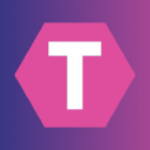Welcome to our dedicated page for Tscan Therapeutics SEC filings (Ticker: TCRX), a comprehensive resource for investors and traders seeking official regulatory documents including 10-K annual reports, 10-Q quarterly earnings, 8-K material events, and insider trading forms.
The TScan Therapeutics, Inc. (TCRX) SEC filings page on Stock Titan provides access to the company’s regulatory documents as filed with the U.S. Securities and Exchange Commission. TScan is a clinical-stage biotechnology company listed on The Nasdaq Global Market, and its filings offer detailed insight into its T cell receptor-engineered T cell (TCR-T) therapy programs, financial condition, and corporate governance.
For TCRX, key filings include current reports on Form 8-K that describe material events such as clinical and regulatory milestones for TSC-101 in the ALLOHA™ Phase 1 heme trial, strategic prioritization of the hematologic malignancies program, pauses in solid tumor trial enrollment, and updates on in vivo engineering and autoimmunity research. Other 8-Ks address financial results, workforce changes, executive appointments, and stockholder meeting outcomes. These documents help readers understand how TScan is advancing its heme and solid tumor programs, implementing a commercial-ready manufacturing process, and managing its operating runway.
Investors can also use this page to locate annual and quarterly reports (Forms 10-K and 10-Q) when available, which typically contain comprehensive discussions of TScan’s pipeline, risk factors, and financial statements. In addition, filings related to equity compensation plans, retention programs for key executives, and stockholder votes provide visibility into compensation structures and governance practices.
Stock Titan enhances access to TCRX filings by offering real-time updates from EDGAR and AI-powered summaries that explain the significance of each document in straightforward language. Users can quickly scan for information on clinical trial plans, cash runway disclosures, strategic shifts between heme, solid tumor, and autoimmunity efforts, and other developments that shape TScan Therapeutics’ profile as a public biotechnology company.
TScan Therapeutics granted Chief Financial Officer Jason Amello a stock option for 350,000 shares of voting common stock on January 20, 2026. The option has an exercise price of $1.12 per share and was awarded at no cost to the executive. Following this grant, Amello beneficially owns options for 350,000 shares.
The award vests over time: 25% of the shares vest on the one-year anniversary of January 20, 2026, with the remaining 75% vesting in equal monthly installments over the next 36 months, conditioned on his continued service with the company.
TScan Therapeutics, Inc. granted stock options to its Chief Executive Officer and director, Gavin MacBeath. On January 20, 2026, he received a stock option to purchase 1,165,000 shares of voting common stock at an exercise price of $1.12 per share. The option was granted at no cost for the derivative itself.
According to the vesting terms, 25% of the shares subject to the option will vest and become exercisable on the one-year anniversary of January 20, 2026, with the remaining shares vesting in equal monthly installments over the following 36 months. Vesting is conditioned on his continued service to the company on each vesting date. Following this grant, MacBeath beneficially owned 1,165,000 derivative securities directly.
TScan Therapeutics, Inc. reported that officer Dworak Leiden received a stock option grant covering 100,000 shares of voting common stock on January 20, 2026. The option has an exercise price of $1.12 per share and was awarded at no cost for the derivative itself. The grant vests 25% of the shares on the one-year anniversary of January 20, 2026, with the remaining shares vesting in equal monthly installments over the next 36 months, conditioned on continued service. Following this award, the reporting person beneficially owns 100,000 derivative securities directly.
TScan Therapeutics granted its Chief Medical Officer, Louis Chrystal, a stock option covering 420,000 shares of voting common stock at an exercise price of $1.12 per share. The option was granted on January 20, 2026 and is held directly. The award vests over four years: 25% of the shares vest on the one-year anniversary of January 20, 2026, with the remaining 75% vesting in equal monthly installments over the following 36 months, conditioned on Chrystal’s continued service with the company on each vesting date.
TScan Therapeutics reported that officer Zoran Zdraveski, Chief Legal and Strategy Officer, received a grant of 350,000 stock options on January 20, 2026. These options give the right to buy TScan voting common stock at an exercise price of $1.12 per share and expire on January 20, 2036.
According to the vesting terms, 25% of the options vest on the one-year anniversary of January 20, 2026, with the remaining options vesting in equal monthly installments over the following 36 months, subject to Mr. Zdraveski’s continued service with the company. After this grant, he beneficially owns 350,000 derivative securities directly in the form of these options.
TScan Therapeutics, Inc. furnished a new corporate presentation that it plans to use in meetings during the 44th Annual J.P. Morgan Healthcare Conference. The materials are provided as Exhibit 99.1 and are also available in the investor relations section of the company’s website. The presentation is being furnished under a current report on Form 8-K, meaning it is not treated as filed for liability purposes and is not automatically incorporated into other securities law filings unless specifically referenced.
TScan Therapeutics, Inc. approved a targeted retention program for key executives tied to progress in its pivotal trial of TSC-101. The Board, following the Compensation Committee’s recommendation, adopted a key employee retention program that provides cash and potential future equity-based awards under the 2021 Equity Incentive Plan.
Under this program, CEO Gavin MacBeath, Ph.D., CFO Jason A. Amello and CMO Chrystal Louis, M.D., M.P.H., will be eligible for cash awards of $399,000, $170,000 and $250,000, respectively. Half of each cash award is payable upon achievement of a milestone related to advancement of the pivotal trial of TSC-101, and the other half on the first anniversary of that milestone.
Upon achievement of the same milestone, they are also slated to receive equity awards of 1,000,000 RSUs, 270,000 RSUs and 650,000 RSUs, respectively. These RSUs are scheduled to vest 25% on the second anniversary of the milestone and 75% upon the earlier of reporting completion of the pivotal TSC-101 trial or the fourth anniversary of the grant date, subject to continued service and the terms of the plan and award agreements.
TScan Therapeutics reported third-quarter results, highlighting collaboration revenue and continued investment in its TCR-T pipeline. Q3 2025 collaboration and license revenue was $2.5 million, while research and development expense reached $31.7 million and general and administrative expense was $7.9 million. The company recorded a net loss of $35.7 million.
As of September 30, 2025, cash, cash equivalents and marketable securities totaled $184.5 million, and long‑term debt was $32.4 million. Year to date, revenue was $7.8 million, primarily from the Amgen collaboration.
After aligning with the FDA on a registrational path for TSC‑101, TScan prioritized its heme program, paused enrollment in its solid tumor Phase 1 trial, and implemented a workforce reduction of approximately 30% (66 roles). The company expects a one‑time charge of up to $2.3 million in Q4 2025 and now expects its cash resources to fund operations into the second half of 2027. As of November 7, 2025, shares outstanding were 52,471,405 voting common and 4,276,588 non‑voting common.
TScan Therapeutics (TCRX) filed an 8-K stating it furnished a press release announcing financial results for the quarter ended September 30, 2025. The press release is included as Exhibit 99.1.
The company notes the information is furnished under Item 2.02 and is not deemed filed for purposes of Section 18 of the Exchange Act, nor incorporated by reference into other filings unless specifically stated.
TScan Therapeutics announced a strategic shift to prioritize its hematologic malignancies program and pause further enrollment in its solid tumor Phase 1 trial. The company will focus preclinical work on in vivo engineering for solid tumors and target discovery in autoimmunity. TScan also implemented a workforce reduction of approximately 30%, or 66 roles, and expects a one-time charge of up to $2.3 million in the quarter ending December 31, 2025.
TScan reported alignment with the FDA on the pivotal study design for TSC-101. The company furnished a press release and slide presentation detailing these updates.


